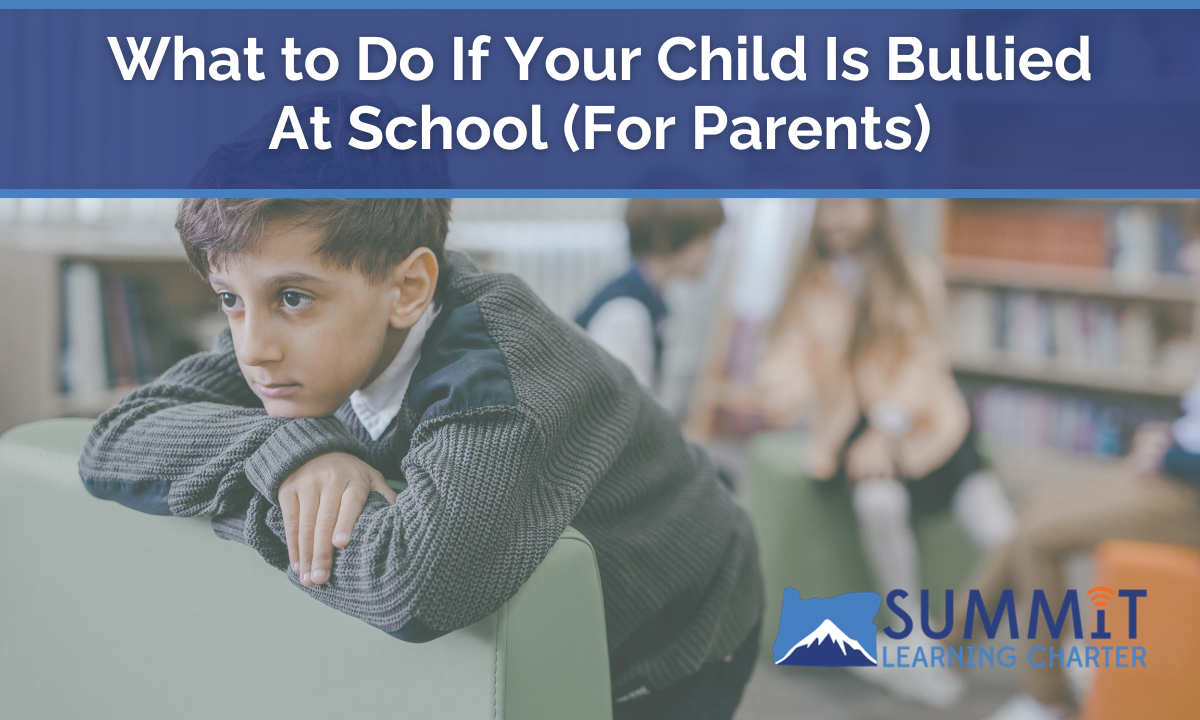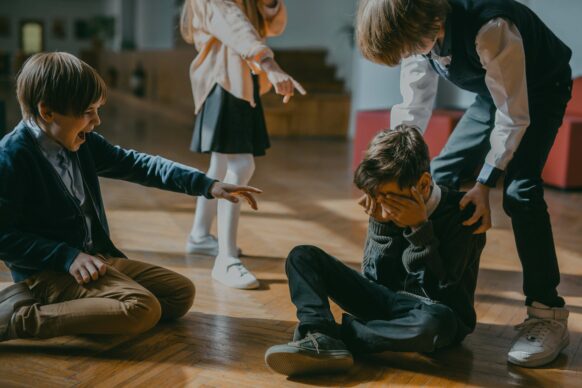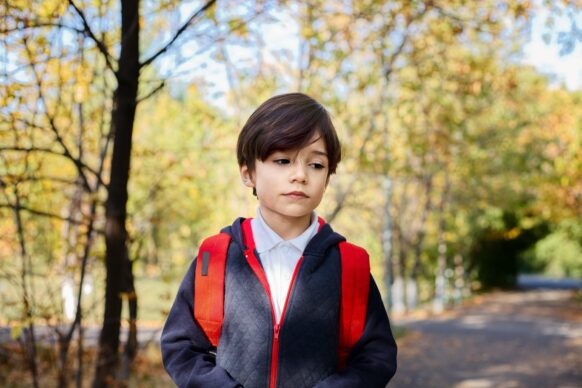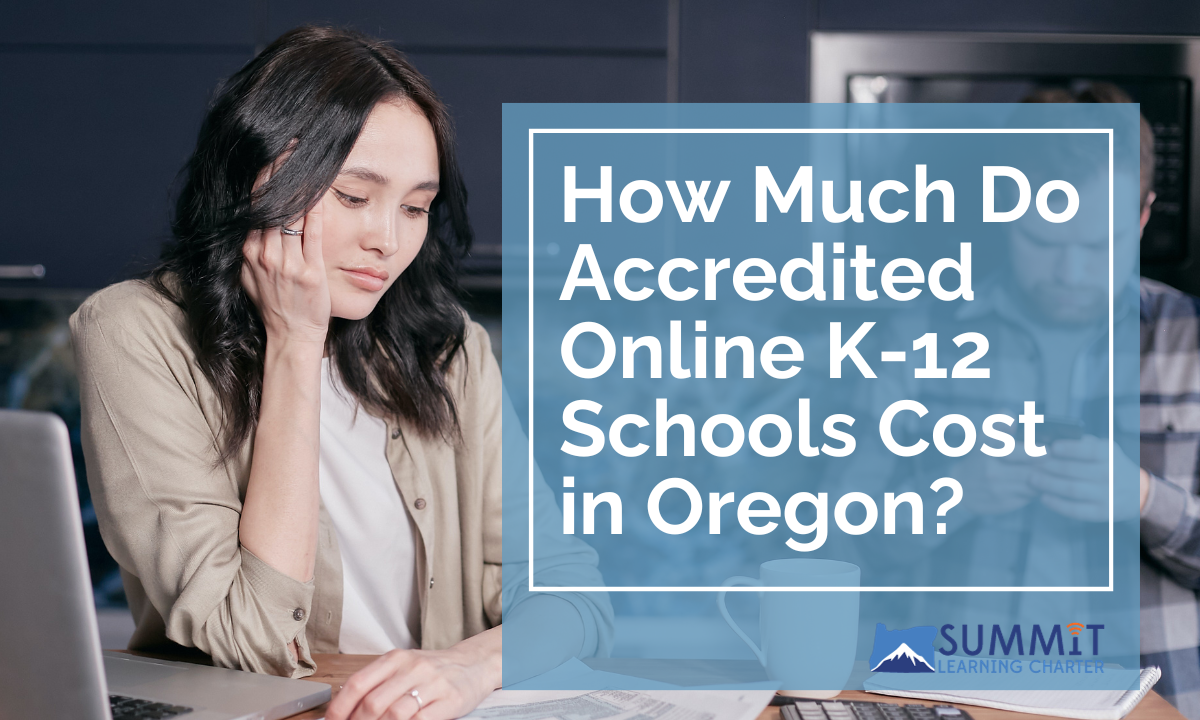
What to Do If Your Child Is Bullied At School (For Parents)
Bullying is a widespread problem in schools across the country. According to the CDC, almost 14% of public schools report ongoing bullying, with middle schools (28%) and high schools (16%) experiencing the highest rates. Bullying is officially defined as “unwanted, aggressive behavior among school-aged children that involves a real or perceived power imbalance,” and it can have a serious long-term negative impact on both children who are bullied and those who bully others.
If you know or suspect your child or teen is being bullied at school, it can make you feel helpless to stop it. After all, you can’t always be there at school to step in and protect them. But while it can be difficult to know how to handle your child being bullied, you’re not alone. There are effective strategies and resources that can help you address the issue and protect your child.
Keep reading to learn how to identify the signs of bullying and what you can do to stop it.
How To Recognize the Signs of Bullying

We all want to keep our kids safe from bullying and harassment. Unfortunately, it’s not possible to keep an eye on your child every second of the day, especially when they’re at school. But there are behavioral and physical signs of bullying that can sometimes be observed at home.
Common warning signs of bullying include:
- Unexplained injuries
- Frequent, mysterious illnesses
- Declining performance and/or interest in school work
- Frequent tardiness or absence from school
- Difficulty sleeping and/or persistent nightmares
- Decreased self-esteem
- Feelings of helplessness
- Social withdrawal
- Unexplained loss or destruction of property
- Self-destructive habits (running away, self harm, discussions of suicide)
Effects on Mental Health
The consequences of bullying reach far beyond physical harassment or name-calling. Bullying has been shown to contribute to severe mental health problems both in the short- and long-term.
Anxiety, depression, eating disorders, and suicidal thoughts are significantly more common in children who experience bulllying. Research also suggests that bullying in childhood can negatively impact relationships, economic independence, mental health, and overall quality of life in adulthood.
Learning How To Communicate With Your Child

By creating a safe and open environment for your child to talk about what’s happening and share their feelings, you can immediately make them feel less alone.
Here are some tips for opening up a dialogue with your child about bullying:
- Make sure they know they did the right thing by talking to you.
- Explain that it’s not their fault; the bully is the one behaving badly.
- Listen carefully and ask lots of questions.
- Try not to react in anger; they’re more likely to share things with you if they know you won’t immediately contact the school or get involved without talking to them first.
- Reassure them you’ll figure out what to do together as a team.
Work With the School
Schools should always take a vested interest in protecting the emotional and physical wellbeing of their students. As a parent or guardian, working with your child’s school is essential to addressing the problem:
- Look into the school’s anti-bullying policies
- Keep a record of any evidence or information about instances of bullying.
- Report the bullying to school administrators.
- Request meetings with school staff to ensure they’re aware of the situation.
- Discuss bullying prevention initiatives with the school’s administration.
Encourage Positive Coping Strategies and Confidence

With your support and the help and supervision of the school, it will be much easier for your child to cope and begin to regain their confidence.
Teach your child basic conflict resolution skills that they can implement when they’re faced with bullying to help them protect themselves and respond appropriately when they feel angry, hurt, or frustrated. Remind them to be assertive in standing up for themselves and to seek help and support when they need it. Encourage them to engage with positive peer relationships, extracurricular activities, and other things they enjoy and that give them a sense of confidence.
Other Solutions if Your Child Is Still Struggling

In some cases, bullying may persist despite the best efforts of the victim, their parents, and the school. It’s also common for children who have been bullied to continue to struggle even after the bullying has stopped.
Here are some other resources and strategies you might consider if your family is in this type of situation:
- Seek the help of a therapist.
- Schedule ongoing meetings with the school, or even think about switching to virtual school or another alternative to their current school.
- Continue to be there for them emotionally and build their confidence.
- Get involved with bullying prevention organizations and support groups.
Know Your Legal Rights
The state of Oregon has passed several anti-bullying laws and regulations to protect children from physical bullying and cyberbullying. Knowing your rights and the rights of your child is an important step in ensuring that the situation is handled effectively.
It’s important to remember that getting law enforcement involved is sometimes necessary, particularly in cases where threats of violence or physical abuse have taken place. Police may be able to provide you with legal resources moving forward, and you may even choose to pursue a restraining order.
How To Promote Anti-Bullying Initiatives
Preventing bullying is vital to protecting the long-term health and safety of children. Here are a few ways to help stop and prevent bullying in your community:
- Get involved in anti-bullying programs.
- Work with other parents to address the problem.
- Encourage open discussions about bullying.
- Teach empathy and tolerance at home.
- Model kind and respectful behavior at home.
Summit Learning Charter Offers an Alternative To Traditional Schooling

No child should have to suffer with bullying or harassment, and no parent or guardian should feel alone in trying to protect their kids. If you’ve decided that your child needs to be taken out of their current school, you have options.
As a fully accredited virtual academy in Oregon, Summit Learning Charter offers an effective alternative to in-person education. With a staff of compassionate educators and administrators, completely online and blended learning options, and a host of helpful resources for students and their families, SLC is here to provide your student with a quality education and a supportive community of teachers and learners.
Call us at (503) 630-5001 to learn more about our virtual academy and apply today!



